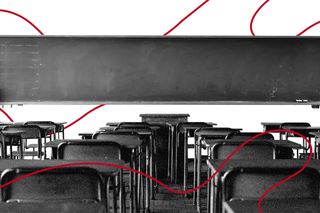
More Than 1 Lakh Students Have Signed ‘Cancel Board Exam’ Petitions in the Last 24 Hours
One petition requests the government to “… cancel all examinations to be held this year as students are already under a lot of stress.”

Students are urging the central government to defer or cancel the Class 10 and 12 board exams, which are slated to begin next month. Their urgent appeal has translated into more than 550 petitions on Change.org in the last one day and more than 900 petitions in one month, according to The Print.
The argument students make is simple: that offline exams pose a health risk under the shadow of a ‘dangerous’ second Covid19 surge. But on a more basal level, preparing for a board exam during an ongoing pandemic, one that refuses to die down in intensity, is an impractical demand that adds to the stress and anxiety of living amid a global health crisis. More than 1.5 lakh students have mobilized so far through online petitions; it “is currently raining exam-related petitions on Change.org,” Country Director Nida Hasan told The Print.
The Central Board of Secondary Education (CBSE) and Council for the Indian School Certificate Exams (CISCE) exams are both scheduled to begin from May 4, and both boards have shown no indication of giving in to students’ appeals.
“The prospect of taking CBSE and ICSE board exams offline in examination centers against the backdrop of the second wave of the pandemic is terrifying for many students and their parents,” Hasan said.
There’s a parallel campaign trending on Twitter, with students using the permutations of the hashtag “cancelboardexams2021″ to air their grievances. Moreover, a section of disabled students enrolled with the National Institute of Open Schooling (NIOS), one of the largest open schooling systems in the world, has also made a similar demand.
“The trauma of putting students like my son, who suffers from cerebral palsy and is a wheelchair user, and his classmates with varying degrees of learning and intellectual disabilities like autism, ADHD (attention deficit hyperactivity disorder), through examinations is daunting,” a mother writes in a plea to the government reported in The Print.
Related on The Swaddle:
Will the Pandemic Make Indian Society More Accepting of Gap Years?
Last year, board examinations were first pushed from March to May, and then canceled given the original rising Covid19 case count. Students were eventually promoted based on past performance. For this year, the central government and different state counterparts had mulled reducing the annual syllabus and scheduling this year’s exams to mid-2021, with the hope that by such time the pandemic would have reined in.
Clearly, reality has thwarted expectations. but the national education boards have refused to budge so far this year. There are enough Covid19 health guidelines in place and the number of examination centers has been increased (almost doubled, according to a report) to ensure social distancing and overall safety, they maintain.
However, critics register their opposition on logistical and humanitarian grounds: One, board exam centers are often at a significant distance from homes or allocated in different cities; traveling during peacetime is an inconvenience, and to make a similar demand now borders on absurdity, even more so for students with physical disabilities.
Two, sitting for a physical exam in rooms populated by others (despite any and every restriction), brings forth a fundamental issue of students’ safety. This is more complicated in cases of scribes writing for disabled students, who will have to sit within reasonable proximity to listen and write papers. The health risk also touches upon a growing discourse, one that argues that young people are equally deserving of Covid19 vaccines; as long as students are denied immunization, they shouldn’t be forced into positions of exposure.
Lastly, exams are not confined to their date sheets — the preparation and stress that precede them take a mental and emotional toll; board exams are notorious for the kind of pressure (some have called it an undeniable terror) they bring even during normal times. During Covid19, several studies have pointed to rising anxiety and depression in young people, hinting at a mental health crisis in making. The current decision to carry on with exams makes more demands on their emotional bandwidth and threatens their ability to perform to the best of their ability.
The debate boils down to: can students’ health (mental, emotional, and physical) be reason enough for systems and governments to make allowances? Precedent lies in last year’s decision by the University Grants Commission, the higher education regulatory body that looks after institutes such as the Delhi University, to carry out online exams. And in judicial remarks from last year’sruling to cancel the annual engineering and medical entrance tests (JEE and NEET), in which a Supreme Court judge said: “Education should be opened up. Covid19 may continue for a year more. Are you going to wait for another year? Do you know what is the loss to the country and the career peril to the students?”
The sentiment seems to be that the show must go on. But at some point, we must step back and take note of the stakes, which are not only dangerously high but involve real people.
Saumya Kalia is an Associate Editor at The Swaddle. Her journalism and writing explore issues of social justice, digital sub-cultures, media ecosystem, literature, and memory as they cut across socio-cultural periods. You can reach her at @Saumya_Kalia.
Related


Why Do True Crime Stories Fascinate Us?
